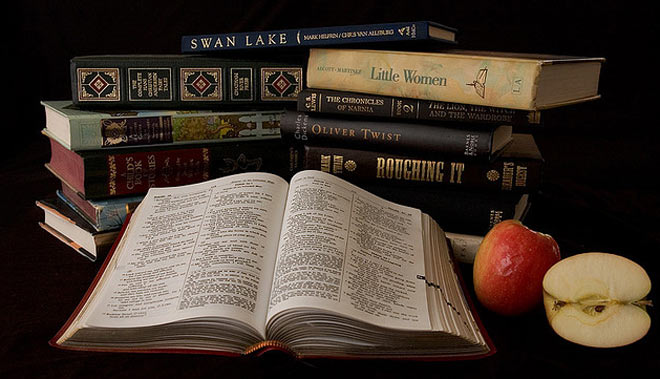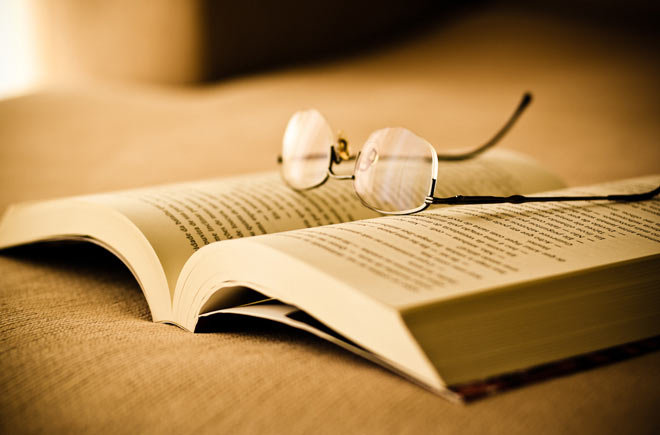Information, information, information… and then some. Well, I guess this is about right considering how well trained we are to interact with different kind of media and consume vast quantity of it.
In an era where advertising was the only tool inducing people to consume streams of trivial and non-applicable information curiosity, though rising, was still able to be controlled.

Fast forward twenty-some years, and we have a digitalized world, information available one click away (or a voice command to Siri, if you so prefer), and we are, out of curiosity, procrastination or whatnot, stuffing ourselves with content in any form you can think of. Text, video, podcast, infographics… Bring it on, right? On our laptop, tablet, phone, e-reader, TV…
So what is the angle here? Any information is a plus, right? Not if it interferes with your work it isn’t. Not to mention the correlation of information consumption and attention deficit disorders which is apparently rising.
Think of it as diet. No, wait, think of it as medication
Information is, for the most part, consumed in order to ease some aspects of our lives. Improve our skills, clutter free our life, upgrade everything down from our career to health, appearance, social life… The more information we consume, the more aware we become, the better the quality of our life eventually turns out.
And at a glance this is impressive math. Only that it is completely flawed.
You see, if information is consumed in order to either resolve some problems or prevent hypothetical ones, then the analogy goes that it is similar to diet. Medication, even.
And overconsumption in these areas is never good. Never.
If you think about it, it goes the other way around – Creating even bigger of a mess.
I remember when I first started with fitness. Every article on the internet would get my attention, every workout video on YouTube, every new claim, myth, and popular trend. Over time, I learned to stick with the basics. Not only was it healthier, but I kept my sanity too. Nowadays, I log-in to a single fitness platform, and stream one video every day. Of course, I follow our own fitness program, but you can chose any platform such as Beachbody on Demand, or Daily Burn or maybe even stick with a simple app.
Why we tend to consume so much information?
“Just because” is not the answer here. There is some complexity into play. For some it is the yearning to know more, to learn more, to understand more.
For others it is a form of postponing other, more important, tasks to be given the attention they deserve.
Then, there are those who are caught in the constant chase around the maypole where that “one more blog post” or “one more online magazine” will provide the best answer to whatever they are hoping to find. And it is always that one more. Just like a false mantra. Like some kind of addiction. Drugs.
People like me probably find the thrill in seeing their RSS feed full with new articles. Like a Christmas box of presents waiting to be open. And once you get yourself caught in this downward spiral, there is hardly any optimism for getting out. You simply want to consume more.
Consumption is not the same as digestion

And herein lies the problem, you see. When we take more than we can process there is this frustration that information is about to escape. This sounds weird (all right, I agree, it sounds borderline loony) but bear with me. That there is more information that we can take at a time is the reason why many of us are driven to up the consumption. Makes sense?
It is like when you know that there are so many apples on the tree and you start eating faster just because you are being hit by this realization.
Psychology mumbo jumbo, right?
But anyway, what is outlined here is the discrepancy between how much you try to stuff in, and how much can be processed by your conscious and focused self. And with media arriving in thousand forms, it just gets bigger.
How to effectively improve your information diet?
I will sell you a magic pill at the end of this article and we are all set, OK?
Wait, don’t close this tab, joking. I kinda wish it was that easy.
First of all, you must come to understand why you want to improve your information intake, and this will shine light on the right approach.
If you want to minimize information intake because you want to apply more from what you already know first, you can try a different technique from say, if you want to minimize information intake in order to avoid the distraction that it is causing throughout the day.
Here are two incredibly effective ways to be in control of what you consume and how much you digest on daily basis.
- Divide your time previously dedicated for information consumption into two parts; one for consuming information, the other, equally large, for coming up with ways on how that information you just have consumed would be applied on what you want and need.I use pen and paper as to minimalize the process. You can however go with Evernote, software, apps of any kind. The premise is that you are smashing two flies with one shot – on the one side you are solving the problem of information intake which is now half part deduced; and on the other, you are finding a way to make every information applicable to your life.
Fast forward some weeks and you will refine your information intake making efficient decisions on what is useful and applicable, and what is not. Which brings me to the next point.
- Before trying to consume information in any format, first ask yourself whether it is useful or applicable to your life and what you are currently doing. If not, put it in a folder, bookmark it, find some digital solution which will allow you to come back to it later in your life.Though radical, this actually solves the problem quite effectively.
Then there is the option of combining these two and dramatically changing your information consumption habits.
Some tips on how to deduce information intake, fight attention deficit disorder symptoms and restore sanity

Deleting a paragraph of prep talk and cutting right to the chase.
So here we go:
- Refine your Facebook, tweeter, G+ feeds. I personally have in my feed only things I’m either very curious about, or am in recent contact with.
- Try not to ask any feedback on activities such as running, sports, fitness in general. What does this mean? For starters, knowing your heart rate every second down the track is not imperative. It is information not necessarily needed, it distracts, it creates clutter. In most cases, that is. Do not obsess with reps either or any other statistics. That is too much information.
- I know I advocate multitasking as a lifestyle Update, but if you handle too much information at once and have had enough, maybe listening to some podcast on how to create a profitable business while you run and prepare for a 5K race is not a great idea.
- Which media suits you the most? Video? Stick with it. If you digest information in a certain format better than in others, it is probably best to continue consuming it that way. I recall reading articles in the morning, watching some videos after lunch and listening podcasts while walking my dog at night… Rollercoaster to be honest. It makes so much difficult for you to digest them.
- Have conversations where you discuss ideas, and rarely new information about events, places, people, trivia… These are like junk food snack if I pull the diet analogy again.
Information is accessible everywhere and society is conditioning us to consume more of it by the day. Whether it is the false premise that you are improving yourself with every line of text and every frame of video you consume, or just consumerism turning you into the informed buyer, it doesn’t matter.
Instead of improving the quality of your life it tends to do the opposite. And seeing how this trend develops, taking a precautionary measure seems about right.